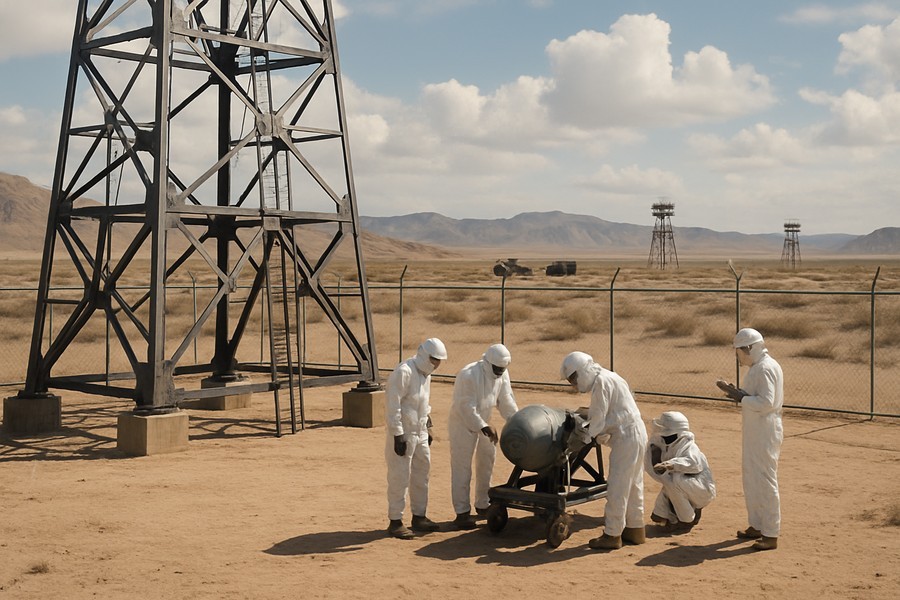
US Plans to Resume Nuclear Weapon Testing After Nearly Three Decades
It's been announced that the United States is planning to start testing nuclear weapons again in order to keep up with other countries like Russia and China. This marks the first time such tests would be conducted since 1992.
Why the Change in Policy?
Despite being the country with the most nuclear weapons, the US feels compelled to increase testing in response to similar activities in other countries. The list of nuclear-armed nations includes Russia, who holds the second most nuclear weapons, followed by China in a distant third place.
The announcement came after criticisms were levied against Russia for their testing of a nuclear-powered missile. However, Russia has insisted that their tests did not involve the use of nuclear weapons.
Details Yet to Be Determined
Despite the announcement, it's unclear if the testing will involve actual nuclear explosions or simply involve system testing of weapons capable of carrying nuclear warheads. Nevertheless, the decision to resume testing is perceived as a significant change in longstanding US policy.
It was also revealed that the exact location of the proposed tests will be determined at a later date.
Global Responses
Other players on the global stage have responded to the news. Russia, for instance, has expressed hope that the information about their recent tests has been accurately communicated to the US. They also noted that if the US decides to break from the current moratorium on nuclear testing, they will respond accordingly.
China, another key player, has expressed hopes that the US will continue to fulfill its obligations under the Comprehensive Nuclear-Test-Ban Treaty and maintain its suspension of nuclear testing.
Nuclear Arsenal Overview
While the exact numbers of nuclear warheads held by each country are kept confidential, estimates suggest that Russia has around 5,459 warheads while the US has approximately 5,177. The third largest nuclear power, China, reportedly possesses about 600 warheads. Other countries like France, the United Kingdom, India, Pakistan, Israel, and North Korea also have considerable nuclear arsenals.
Experts predict that the size of China's nuclear arsenal is likely to double in the next decade, exceeding 1,000 weapons by 2030.
The Future of Nuclear Arms Treaties
The announcement of resumed testing comes as the New Strategic Arms Reduction Treaty (New Start), the last remaining nuclear arms treaty between the US and Russia, nears its expiration in 2026. This treaty currently limits each country to 1,550 warheads on intercontinental missiles.
Historical Context
The last time a nuclear bomb was tested in the US was on September 23, 1992, at an underground facility in Nevada. This was the 1,054th nuclear weapons test conducted by the US. The site, located 65 miles north of Las Vegas, is still operated by the US government and could potentially be authorized for nuclear weapons testing again.
Experts suggest that it would take the US at least three years to restart underground nuclear tests at the former Nevada test site.
It's worth noting that the US was the first country to enter the nuclear era with the Trinity test of the first atomic bomb in July 1945, and remains the only country to have used nuclear weapons in warfare. This occurred during World War Two when atomic bombs were dropped on the Japanese cities of Hiroshima and Nagasaki, resulting in the deaths of hundreds of thousands of people.
Critiques and Concerns
The announcement has been met with criticism, with some claiming that there is no technical, military, or political justification for resuming nuclear testing for the first time since 1992. There are also concerns that such a move could trigger a chain reaction of nuclear testing by other countries and undermine the nuclear Nonproliferation Treaty.
Some opposition figures have also expressed their disapproval of the announcement, with plans to introduce legislation to halt the proposed resumption of nuclear testing.
